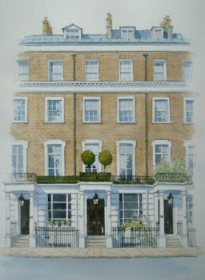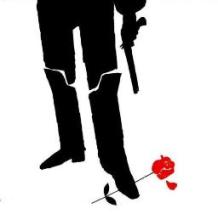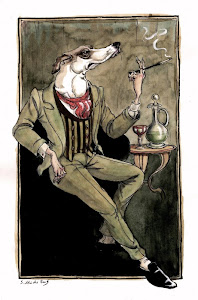 It is in times like these, as the darkening horizon draws near, and as notions of loss occupy my thoughts, that I seek solace in literature. The Leopard, by Giuseppe di Lampedusa, is a classic story of aristocratic decline in an age of revolution. Set in Sicily at the time of the Risorgimento, it centers on the character and views of Don Fabrizio Corbera, Prince of Salina, a Sicilian aristocrat of German extraction.
It is in times like these, as the darkening horizon draws near, and as notions of loss occupy my thoughts, that I seek solace in literature. The Leopard, by Giuseppe di Lampedusa, is a classic story of aristocratic decline in an age of revolution. Set in Sicily at the time of the Risorgimento, it centers on the character and views of Don Fabrizio Corbera, Prince of Salina, a Sicilian aristocrat of German extraction. Fabrizio's world is coming to a close. Whilst the nationalist Redshirts under Garibaldi invade the island, Fabrizio spends his time indulging his interest in astronomy and his passion for women. He tends to his estate, Donnafugata, and holds discussions with his tolerant yet gently disapproving priest. In need of money, his ambitious nephew Tancredi marries the daughter of the village mayor, who also happens to be the local mafia chieftan. It is the end of aristocracy and the triumph of the merchants, the middle classes, and the democrats.
Don Fabrizio's attitude to what is happening around him is one of resignation. On a political and social level, this is disappointing. One wishes he would spend less time looking through his telescope and more time organising a resistance. His political impotence in the face of savagery is symptomatic, one could argue, of the deeper maladies that later came to infect the ruling class of the West in the nineteenth and twentieth centuries. Piety gave way to decadence, virility to effeminacy, loyalty to treason; the biggest tragedy by far was the loss of confidence. But accepting fate is part of the aristocratic ethos to which a nobleman such as Don Fabrizio would adhere, so perhaps we should not be too hard on him.
As a novel The Leopard transcends its historical setting. Lampedusa (1896-1957) wrote the story during WWII whilst Sicily was overrun by Allied troops. Although partly based on the author's own family history, it can also be seen as his reaction to the occupiers' destruction of Sicily's ancient palaces and estates, not to mention their corrosive notions of liberalism and democracy. The story echoes our present day situation. As revolutionary processes threaten to obliterate traditional societies, the only things we are left with -- like Don Fabrizio -- are memories of a better, nobler age. The Leopard reminds us that change too often equals decline, especially in the modern era.
 Similarly beguiling is Lampedusa's short story, The Professor and the Siren. For me, it is an even more haunting tale than The Leopard. It has certainly stuck in my mind all these years since I first read it. I think of it often.
Similarly beguiling is Lampedusa's short story, The Professor and the Siren. For me, it is an even more haunting tale than The Leopard. It has certainly stuck in my mind all these years since I first read it. I think of it often.





















1 comment:
LBT,
Wonderful insight...,but don't despair. While Sicilian nobility has all but vanished in the face of a Liberalist onslaught it is still a beautiful place to wear linen suits. And the island of Salina is where you can buy a small villa overlooking the other islands, enjoy the eruptions of Aetna and Vulcano nearby, and young italian lovelies prepare your favourite drink ...
Visconti's film with Burt Lancaster, Claudia Cardinale and Alain Delon is worth taking a look if haven't already.
Post a Comment